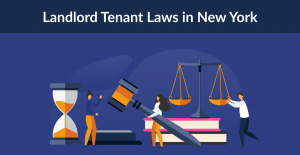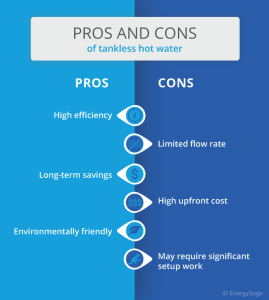How Much Can a Landlord Raise Rent in New York Law in 2023
Go Back To Previous PageAs a New Yorker, you’re probably used to the high cost of living. But what happens when your rent goes up unexpectedly? Fortunately, there are real estate laws in place to protect tenants from significant rent increases. Most tenants in New York expect their landlords to increase their rent annually. However, many tenants do not understand that some rent increases may be illegal. Read on to find the NYC rent increase laws and limits on how much property owners can increase their rent. You need to know about New York’s rent increase laws.
New York’s rent laws have been updated, and here’s what you need to know

Is Your New York Rent Increase Notice Legal?
Legally, the landlord can increase your rent when your lease agreement ends. This is valid for month-to-month, one-year, or two-year leases. Any increase you offer is good if you live in a free-market or non-regulated apartment.
However, you should review your original lease agreement to determine if any provisions prevent the landlord from increasing your rent.
You must receive notice of any rent increase at least 60 days before your lease renewal.
Under the Housing Stability and Tenant Protection Act of 2019 (HSTPA), RPL-226-C requires that tenants receive notice of a rent increase of more than 5% when they receive their lease renewal. Specifically, if the tenant has resided in the apartment for less than a year, the landlord must send the tenant 30 days’ notice of any New York rent increase above 5%.
Specifically, if a tenant has resided in the apartment for less than one year or has a lease agreement for less than one year, the landlord must give the tenant 30 days’ notice if any New York City rent increase is higher than 5%. For tenants who have resided in the apartment for more than one year but less than two years or have a lease agreement for at least one year, the landlord must send the tenant a 60-day notice.
Lastly, tenants who have resided in the apartment for more than two years or have a lease agreement for at least two years must receive a 90-day notice of any rental increase exceeding 5%.
How Much Can a Landlord Raise Rent in NYC in 2023?
Most rent increases rarely exceed 5-10% of your current rent in New York City. However, the exact amount your landlord can raise your rent depends on what type of apartment you live in.
- If you live in a free-market building, there’s no limit on how much a landlord can raise the rent.
- However, suppose you have a rent-stabilized or rent-controlled apartment (i.e., a rent-regulated apartment). In that case, you have protections under the New York State legislature regarding how much a landlord may increase your rent. Remember that over 50% of the apartments in New York City are classified as rent-stabilized or rent-regulated apartments.
Understanding these rules will help ensure rental success for tenants and landlords alike!
Rent-stabilized units
By law, your landlord cannot increase your rent beyond a certain percentage. Specifically, the NYC Rent Guideline Board limits how much a landlord may increase your rent yearly. In June of 2022, the board set a 3.25% increase for one-year lease agreements and a 5% increase for a two-year lease agreement.
This will apply to all leases signed between October 2022 and September 2023.
Free-market apartment or non-rent-regulated apartment
The landlord may increase your market rent to the amount it feels represents the fair market value of your apartment. Admittedly, this can be pretty expensive, given that the New York City rental market has a reputation for being relatively expensive.
Much work is involved in marketing an apartment for new tenants with a good credit score. Therefore, most landlords will not raise your rent so high that the rent becomes unaffordable and forces you to move.
forces you to move.
How the new laws will affect your ability to find an affordable place to live
The new laws can significantly impact your ability to find affordable housing. The regulations may limit the available housing types or make it more difficult for landlords to rent properties at reasonable prices.
This could increase rental rates or even reduce the availability of economical dwellings. Suppose you’re already struggling to find an affordable place to live.
In that case, these changes will likely cause even more significant issues, so knowing how new rent laws in NYC may affect your search for adequate and relatively cheap accommodation is essential. Additionally, researching reliable resources related to housing laws can help you stay informed and navigate the market better.
What can you do if your rent is increased unexpectedly?
Unexpected rent increases can be a source of stress and frustration. The good news is that there are ways to respond when your landlord decides to increase your rent. One option is to negotiate with them. Ask why they are raising the rent and trying to reach an agreement.
You can contact the company directly if renting from a property management company. Management might be more likely to work with you than a private landlord. It’s also worth looking for other rental properties in your area. Even if nothing cheaper is immediately available, it may still serve as leverage when negotiating with your existing landlord.
Even if negotiation and searching fail, tenants can explore legal options such as filing a complaint with their local housing authority or small-claims court for unjustified rent increases. In most cases, taking action is the best way to find an appropriate solution when faced with unexpectedly higher rent payments.
Tips for finding an affordable apartment in New York City
Finding a cheap apartment in New York City is no small feat. It can be daunting to wade through the hundreds of listings and determine which ones are worth looking into further.
Fortunately, you can remember several tips and tricks when searching for a place to live. First, research the different areas of the city to understand which neighborhoods fit your budget. Then, use online tools to compare rental prices and look for specials or discounts that could increase costs.
Lastly, visit multiple potential apartments and determine which features are most important so you can target those places specifically and secure deposits.
With patience and persistence, finding an affordable apartment doesn’t have to be impossible.
How to negotiate with your landlord about a fair rent increase
Dealing with a rent increase with your landlord can be nerve-wracking, but you can ensure a fair outcome with some preparation and understanding of your rights. Before engaging in the conversation, ensure you understand the reasons behind the requested rent increase and have all related paperwork prepared to justify your position.
While remaining open-minded during the negotiation process is essential, it is equally important to stand firm on what you think is a reasonable rate for your rental unit. Make sure to inform yourself about comparable rental prices in the local market so that you have data to back up any counter offers.
In addition, remember that it’s worth investing time into negotiating a good deal as this may save money in the long run. With careful consideration and well-planned negotiations, there is no reason why you can’t reach an agreement that works best for both parties.
Resources for tenants who are struggling to pay their rent
As the COVID-19 pandemic continues, many tenants are facing financial hardship.
But all is not lost! Many resources are available to help tenants with their rent payments. Many local governments have created emergency rental assistance programs that offer grants and loans to help struggling tenants pay their monthly or back rent.



